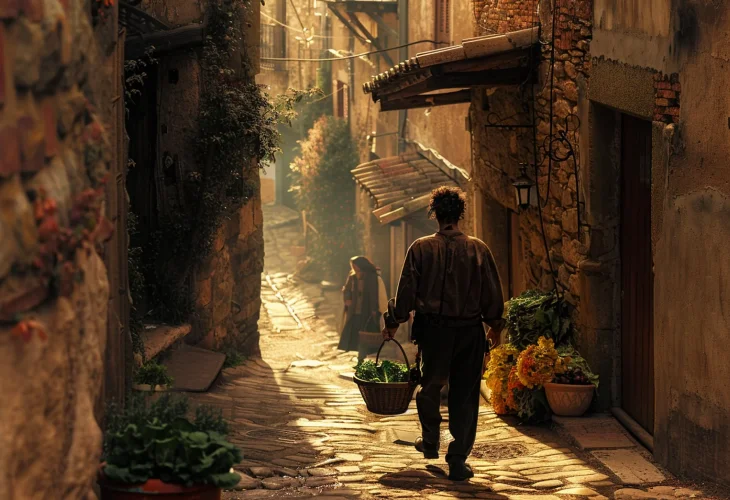History and Archaeology
From Lettuce to Legacy: The Search for Jewish Identity
A childhood memory of lettuce sparks a secret search for Jewish roots, leading to the miraculous rediscovery of a priceless Torah manuscript

About four hundred years ago, in the small town of Saint Gregory in Catalonia, Spain, a boy named Vidal Frangie was born. He was educated in a Catholic school, excelling in his studies, especially in the history of Christianity, and was devoted to its teachings as he understood them.
Vidal’s family lived in poverty. His mother passed away when he was young, and as he grew older, his father became seriously ill. When his father’s condition worsened, he called Vidal to his side and revealed a secret that would change his life. “Know that we are Jews,” his father told him. “Your true name is Moshe. Out of fear of the Inquisition, we raised you as a Christian. When you are left alone in the world, seek out Jews to learn what Judaism is.”
After his father’s passing, Vidal, now aware that he was really Moshe, set out to find Jews. Speaking of such a mission was dangerous. If the Inquisition learned of it, it could cost him his life. Unsure of where to begin, he traveled from city to city and village to village, quietly observing people, searching for a clue.
One day in the city of Girona, he noticed a servant buying large amounts of lettuce at the market. This stirred a long-forgotten childhood memory. He recalled his parents once bringing home a large quantity of lettuce, carefully washing and cutting it. Yet he never saw anyone eat it. By the next day, it had vanished, and no one mentioned it. Now, he wondered if this was a hidden Jewish custom. Determined to learn more, he followed the servant.
The servant’s path led to an elegant home in Girona’s wealthiest district. It belonged to a respected city official. Vidal climbed the stairs and asked to see the master of the house. He was told that visits had to be arranged a week in advance and that visitors had to sign a guestbook stating who they represented and the purpose of their mission. Instead, Vidal told the servant to simply relay one word to the master: “Lettuce.”
Perplexed, the servant did as he was told. Moments later, the master appeared, sending away all his attendants. He confronted Vidal sharply. “Who are you, barging into my home with nonsense?” Vidal replied, “I am a Jew, searching for others like me.” The official grew suspicious, thinking Vidal might be an agent of the Inquisition. He dismissed the claim: “Good luck finding Jews. I know none.”
But Vidal pressed on. “I know it is a Jewish custom to secretly buy lettuce in the spring. If you have no connection to this, perhaps I should mention that you, too, purchase lettuce quietly.”
The official froze in fear. No one knew of this secret, and exposure could bring ruin to his family. Seeing the man’s distress, Vidal reassured him. “I know little of Judaism myself. My father died before he could teach me, but he told me to seek out Jews.”
Slowly, the official began to believe him. He invited Vidal inside and admitted, “In the spring, I eat matzah and maror (bitter herbs) for Passover, but I know little else about our traditions. I cannot teach you Torah. Still, my great-great-grandfather was a great Torah scholar and Kabbalist, Rabbi Bachya ben Asher. I inherited a scroll he wrote, but I cannot read it because I don’t know Hebrew. Take it with you. When you find Jews, give it to them.”
With the scroll in his care, Vidal continued his journey, crossing into France. No one suspected he was Jewish, for he had no Jewish education. Eventually, he found Jewish people and entrusted them with the scroll. To their astonishment, it turned out to be the “Kad HaKemach,” a work by Rabbeinu Bachya, one of the great sages of pre-expulsion Spain and a disciple of the Rashba.
Rabbeinu Bachya was the author of several monumental works, including “Chovot HaLevavot” (Duties of the Heart) and a Torah commentary that combined Kabbalistic insights with the plain meaning of the text. This remarkable story is recorded in “Omer HaShichecha” by Rabbi Avraham ben Rabbi Yaakov Givishon.

